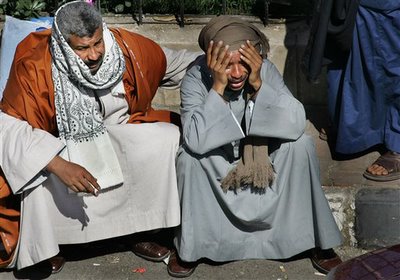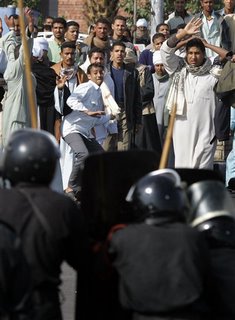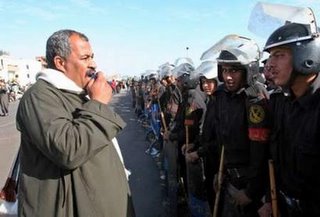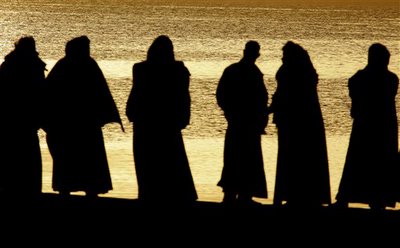 It is one of the worst disasters in Egyptian maritime history. At or around midnight on friday, the ferry As-Salam 98, carrying 1,414 passengers from Saudi Arabia to Safaga, sank in the Red Sea after a fire broke out on the car deck. Flooding occurred during the firefighting, causing the vessel to list and then capsize. No distress signals were sent from the ship, and search and rescue operations were launched seven hours after it sank. Reuters and AFP have compiled more details.
It is one of the worst disasters in Egyptian maritime history. At or around midnight on friday, the ferry As-Salam 98, carrying 1,414 passengers from Saudi Arabia to Safaga, sank in the Red Sea after a fire broke out on the car deck. Flooding occurred during the firefighting, causing the vessel to list and then capsize. No distress signals were sent from the ship, and search and rescue operations were launched seven hours after it sank. Reuters and AFP have compiled more details.So far, 460 survivors have been brought ashore, after many hours of desperately clinging to life in the frigid waters. Around 190 bodies have been found, and 700 are still missing. The stories of the survivors are chilling. "There was a blaze down below," said survivor Nader Galal Abdel Shafi. "The crew said 'Don't worry, we will put it out.' When things got really bad the crew just went off in the lifeboats and left us on board."
 The press and rights groups are raising pertinent questions over authorities' handling of the disaster, including the deployment of Central Security Forces at Safaga. Relatives flocked to the port from all over Egypt seeking news of their loved ones, and some clashed with riot police who barred their way to the port area and hospital. "We are not afraid of the security forces," said Dahi Abdallah Ahmed, who came to Safaga to look for his missing cousin Khaled, who had found a job in Saudi Arabia. "We are a people that is used to not having any leadership in hard times. We solve problems our own way," he said.
The press and rights groups are raising pertinent questions over authorities' handling of the disaster, including the deployment of Central Security Forces at Safaga. Relatives flocked to the port from all over Egypt seeking news of their loved ones, and some clashed with riot police who barred their way to the port area and hospital. "We are not afraid of the security forces," said Dahi Abdallah Ahmed, who came to Safaga to look for his missing cousin Khaled, who had found a job in Saudi Arabia. "We are a people that is used to not having any leadership in hard times. We solve problems our own way," he said.
 Other distraught relatives pointed to chaotic management and lack of adequate or timely information about the rescue effort. Tareq Sharafeddin had no news of his wife and four children. “Are they among those rescued by the Saudis, are they in a hospital in Hurghada, in the morgue or dead in the sea? I don’t know.”
Other distraught relatives pointed to chaotic management and lack of adequate or timely information about the rescue effort. Tareq Sharafeddin had no news of his wife and four children. “Are they among those rescued by the Saudis, are they in a hospital in Hurghada, in the morgue or dead in the sea? I don’t know.” Like the spate of other recent transport-related disasters, almost all of the passengers were working people who made their living in Gulf countries (some were pilgrims returning from Makka). Survivors and relatives said many of them were bringing back sometimes years' worth of savings.
Like the spate of other recent transport-related disasters, almost all of the passengers were working people who made their living in Gulf countries (some were pilgrims returning from Makka). Survivors and relatives said many of them were bringing back sometimes years' worth of savings.